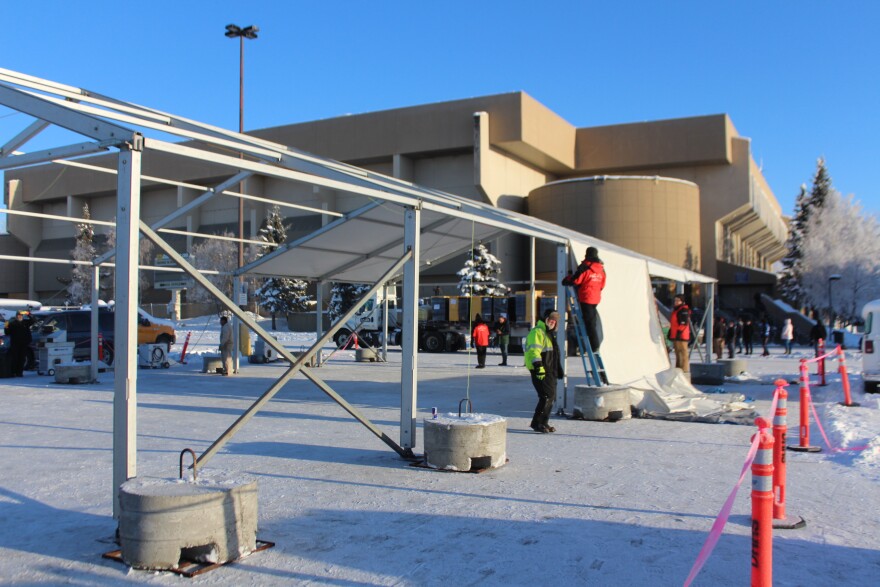A series of shake ups within Mayor Dave Bronson’s administration continued Monday, as another health department official working on homelessness was fired.
Nicole Lebo, director of the human services division of the Anchorage Health Department, said in a phone interview that she was fired on Monday evening. Lebo said she wasn’t given a reason. A health department spokesperson did not respond to phone calls or an emailed request about Lebo’s departure.
In her role, Lebo was in charge of things like distributing federal housing grants and overseeing childcare and shelter licensing. Homeless service providers said she was a key point of contact with the city for issues related to homelessness after the mayoral transition in July.
RELATED: Anchorage’s homelessness director resigns
Jasmine Boyle, who retired last week from the Anchorage Coalition to End Homelessness called Lebo’s departure a “massive loss for city efforts and continuity on homelessness.”
Lebo didn’t want to speculate on why she was fired.
“I don't think it's fair or useful,” she said, “But I will be interested for myself to be going to work for an organization that values truth telling, that is courageous and respectful. I am definitely interested in working for a place that uses language internally and externally that demands respect and dignity for its end users.”
Since Bronson took office in July, several top officials with the health department have resigned or been fired including Medical Officer Bruce Chandler, Epidemiologist Janet Johnston and Public Health Division Manager Christy Lawton.
Many others involved with homelessness and shelter have also recently left the administration, including former homeless coordinator John Morris, mass care lead Shawn Hays, and development director Bob Doehl. Hays now works as shelter director for 99 Plus 1, the private company that oversees the shelter.
RELATED: As winter descends on Anchorage, Sullivan shelter replaces director
Meanwhile, the health department last month took on the responsibility of overseeing all city-run shelters, which collectively sleep over 800 people.
The largest of those shelters, the Sullivan Arena has been over capacity for days during a cold spell in Southcentral Alaska.
Last week advocates raised alarms over what they saw as delays in getting a warming tent set up outside the shelter to expand capacity. Workers set up a warming tent outside the Sullivan Arena on Tuesday, but it didn't have heat.
Boyle said there were also delays in getting family shelter rooms opened up for winter, something she’d been calling on for months. She said the difficulty in getting information from the city recently is concerning.
“There has been such significant turnover in Mass Care staff and health department staff in the positioning of mass care that not only does there appear to be no solid plan on their side, there really has been absolutely no good, safe integration of any of the partners that we have organized,” she said in a phone interview last week.
On Friday, the city set up a dozen hotel rooms for unhoused families and started moving them in. Starting in September, nonprofit shelter providers like Catholic Social Services converted their transitional housing into family housing to make sure families weren’t forced on the streets.
Lisa Aquino, who retired from leading Catholic Social Services last week, said that her organization had to set up family housing when she realized the city’s hotel sites weren’t ready when cold temperatures arrived. She said CSS did so on good faith that the city would pay them back.
“We are concerned about the challenges and communication that have happened. But I think that also just has to do with the changing staff,” she said.
This story has been updated to clarify that a warming hut has been set up at the Sullivan Arena, but it does not currently have heat.

